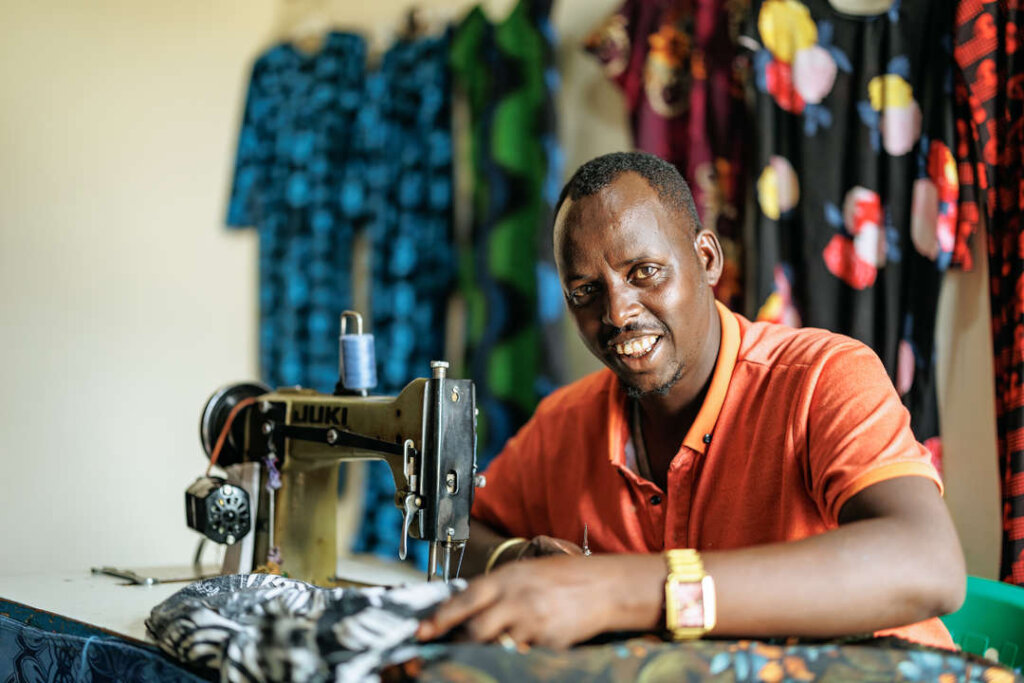By Emmanuel Aziebor | Mercy Corps' Enter Energy Global Director
Not long ago, the low hum of diesel-powered generators permeated throughout Sheder Refugee Camp. Though the generators provided some access to electricity, it was costly to operate, inconsistent, only lasted two to three hours a day, and emitted pollutants. It was difficult for small businesses to earn a steady income without reliable energy. By the time night fell, families not connected to the diesel generators made do with flashlights and candles and avoided traversing across the camp in the dark. The lack of access to reliable and affordable energy affected every part of life in Sheder.
“Because of the irregular electricity supply, I could only work for 3 hours out of the 12 work hours in the day,” said Siyad (all participant names have been changed to protect their privacy), who arrived at Sheder with his family. He supports his family through his work as a tailor. “I was only earning peanuts so I couldn't even afford to provide my family’s basic needs.”
Siyad is one of the more than 14,600 who currently reside at the northeastern Fafan Zone camp for displaced people. In 2008, Sheder Refugee Camp was established to support the displacement of people fleeing from conflict in the neighboring Somalia. Ethiopia is home to over 4.7 million forcibly displaced people, and it is estimated that less than 7% of those people have constant access to energy.
As more people are displaced for longer, there is a clear need to address the energy challenges that arise for communities at risk and those that support them.
The Enter Energy initiative—Mercy Corps’ flagship energy program—is pioneering an approach that is fostering public-private partnerships to provide access to sustainable energy and improve climate resilience in communities affected by displacement.
More than 1,000 households are now connected to reliable and sustainable energy. Humanitarian Energy customers have access to prepaid renewable energy, 24 hours a day—at half the cost of what they used to pay for two hours of diesel-powered electricity. Small business owners like Siyad can improve their productivity and earn more money. “Very soon my income is going to increase,” said Siyad. “I'm going to be rich enough to take care of my family's needs.”
Project reports on GlobalGiving are posted directly to globalgiving.org by Project Leaders as they are completed, generally every 3-4 months. To protect the integrity of these documents, GlobalGiving does not alter them; therefore you may find some language or formatting issues.
If you donate to this project or have donated to this project, you can receive an email when this project posts a report. You can also subscribe for reports without donating.
Support this important cause by creating a personalized fundraising page.
Start a Fundraiser